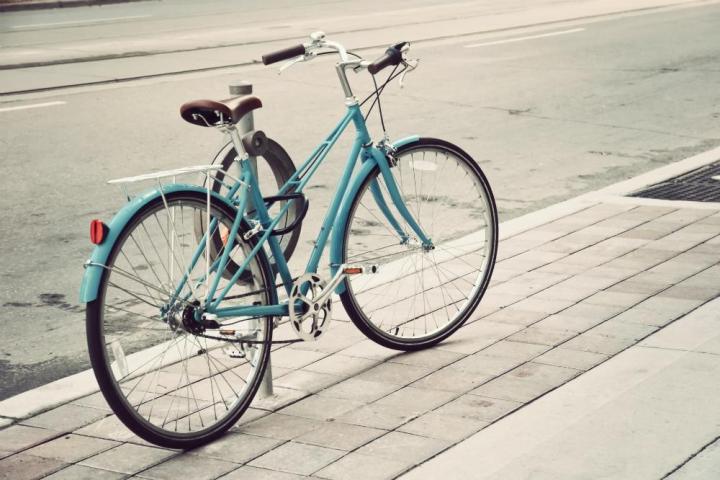
If you’re ever in San Francisco and see a police officer smile as he watches an expensive bike get stolen, don’t fret: It’s probably because that’s exactly what he wants. “Bait bikes” are bicycles tagged with GPS tracking devices, and they’re being deployed by the San Francisco Police Department’s Anti-Bike Theft Unit to catch and shame bike thieves in the city.
Officer Matt Friedman and his plainclothes unit plant these trackable bait bikes around San Francisco to lure and catch thieves. The unit then posts mug shots of the captured culprits on its cheeky and educational Twitter account, @SFPDBikeTheft. In one instance, the unit posted a photo of a cut bike lock cable with this caption: “Normally when I see this I would feel sorry for the owner. Not this time. #thankYou4TakingOurBaitBike.”
Stickers with the question “Is this a bait bike?” are also part of the campaign, thanks to a partnership with a local organization called SAFE Bikes, which educates bicycle owners about how to properly protect against bike theft and maintains a database of registered bicycles.
The bait bike program, which is only a few months old, is aiming to fight a large problem in San Francisco, where more than 4,000 bikes have been stolen since 2012 – three times more than the number of smartphones stolen in the city that year, according to the 2013 city and county San Francisco budget and legislative office policy analysis report. In the past five years, instances of bike theft have risen 70 percent and account for $4.6 million in losses each year, according to the San Francisco Police Department.
The program appears to be working so far. Officer Friedman recently told The New York Times that street-level thefts in the past few weeks have dropped.
That said, the shaming tactics used by Officer Friedman and his team are unsurprisingly getting criticism. One assistant professor at the University of North Carolina said it aggravates the class divide in the city.
This combination of GPS tracking technology and social media to fight bike theft is being used in other cities and college campuses around the country. The University of Wisconsin, Madison, for instance, says bike thefts on its campus have dropped 40 percent since 2008, the first year of its bait bike program (which doesn’t use public shaming).
Bicyclists who don’t live in San Francisco or another bait bike city need not fret: There are plenty of high-tech devices available to help them do more to protect their precious bikes.
[Image courtesy of Pichi/Shutterstock]


